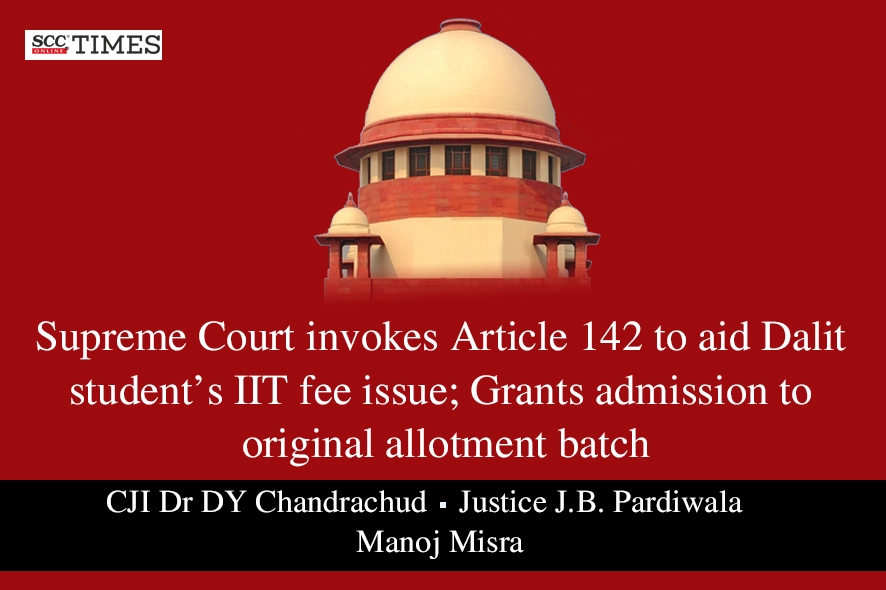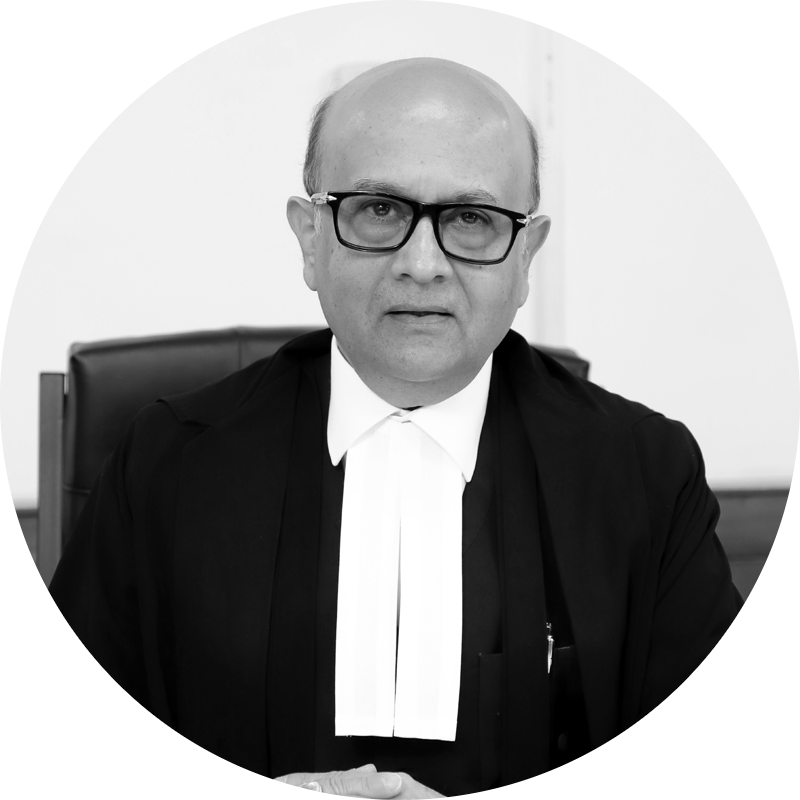Supreme Court: In a matter concerning the unjust denial of admission to a deserving candidate from a marginalized community at Indian Institute of Technology, Dhanbad, the three-Judge bench of Dr Dhananjaya Y Chandrachud, CJI, J B Pardiwala, and Manoj Misra, JJ. while invoking its powers under Article 142 of the Constitution, directed the authorities concerned to grant admission to the student at IIT Dhanbad against the seat which was allotted to him in the branch of Electrical Engineering, to the same batch to which he would have been admitted in pursuance of the order of allotment.
Background:
The petitioner, a meritorious Scheduled Caste student from Uttar Pradesh, secured a rank of 1455 in the JEE (Advanced) 2024 Examination. He has been allotted a seat in the Bachelor of Technology (Electrical Engineering) program at IIT Dhanbad. This was his second and final attempt for admission, as only two attempts are allowed.
The petitioner faced an issue during the online reporting process for admission to IIT Dhanbad. The deadline for completing the process, including fee payment and document uploads, was set for 5 PM on 24-06-2024. Although the petitioner’s parents arranged the necessary funds, and the fees were deposited into his brother’s account by 4:45 PM, the petitioner logged into the Joint Seat Allocation Authority portal at the same time to apply in the ‘float category’ and upload required documents. Unfortunately, the portal closed at 5 PM, and his payment was not processed, resulting in a missed opportunity for admission.
Thereafter, the petitioner addressed an email to the authority. A response was received on 26 -06- 2024 from the IIT Bombay Office for JEE (Advanced) redirecting the candidate to the organizing IIT, which is IIT Madras. Eventually, these attempts did not bear any fruit. Thereafter, he instituted a writ petition before the Madras High Court, but when the case came up for hearing, he was advised to approach the Supreme Court.
Analysis and Decision:
The Court noted the log-in details of the petitioner, which indicate that he was diligent in accessing the portal and did everything within his power to secure the realization of his admission. The petitioner logged in on 24-06-2024 between 15.12 hours and 16.57 hours, on as many as six occasions.
The Bench said that this indicates that he was making earnest efforts to log into the portal. There is no conceivable reason why the petitioner would not have completed the fee payment of ₹17,500 if he had the means to do so.
The Court emphasized that “a talented student like the petitioner, who belongs to a marginalized group and has made every effort to secure admission, should not be left in the lurch. The power of this Court under Article 142 of the Constitution to do substantial justice is intended precisely for situations like this.”
Thus, the Court gave the following directions:
-
The petitioner should be granted admission to IIT Dhanbad against the seat which was allotted to him in the branch of Electrical Engineering.
-
He should be admitted to the same batch to which he would have been admitted in pursuance of the order of allotment.
-
He is ready and willing to pay fees of Rs 17,500, which may be paid over personally at the time when admission is granted to him.
-
A supernumerary seat should be created for the petitioner, if so required, for the purpose of complying with this order, and no existing student should be disturbed in consequence.
-
The petitioner would be entitled to all the consequential benefits of admission, including allotment of hostel accommodation and other facilities
The Court acknowledged that the petitioner’s admission had been delayed through no fault of his own. It requested the Director of IIT Dhanbad to utilize his good offices to facilitate the petitioner’s ability to complete the coursework for the time already elapsed this academic year. This measure aims to ensure that the petitioner remains aligned with his class and does not suffer due to the admission delay.
CASE DETAILS
|
Citation: Appellants : Respondents : |
Advocates who appeared in this case For Petitioner(s): For Respondent(s): |
CORAM :










